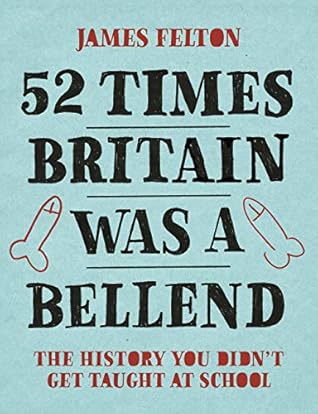More on this book
Community
Kindle Notes & Highlights
In 1820, before the First Opium War, China’s economy was the largest in the world. After the end of the Second Opium War, we left them with half the GDP and millions of drug addicts. But in our defence, we got quite a lot of Earl Grey.
‘The Danes made themselves too acceptable to English women by their elegant manners and their care of their person,’ one 13th-century chronicle reads, justifying why the slaughter took place. ‘They combed their hair daily, according to the custom of their country, and took a bath every Saturday.’
The Anglo-Zanzibar War took place when the Sultan of Zanzibar, Sultan Hamad bin Thuwaini, died. The British had a successor in mind, so when he was succeeded by someone else, who was anti-colonial, the British responded by getting all colonial on their asses.
The schools introduced something called a ‘Welsh Not’. If a child was heard speaking Welsh, they were given a piece of wood inscribed with ‘WN’ to wear around their necks. This could only be passed on to another student if they were found to be guilty of the heinous crime of also speaking in their native language.
The idea was basically to shame children for being bilingual, encourage a culture of snitching, and make tiny children associate their parents speaking Welsh at home with intense feelings of physical pain.
We stole the Elgin Marbles from the Parthenon in Greece, Benin Bronzes from Nigeria and Moai statues from Easter Island. We pinched so much from around the world that walking into a museum in London is basically like walking into an evidence locker with a cafe.
In 1963, in response to a lot of ungrateful countries having the cheek of asking for their stuff back, we passed the British Museum Act, forbidding the British Museum from returning any of its holding, except in a small number of ‘special circumstances’. This basically forbade the museum from returning the Elgin Marbles or the Benin Bronzes without a whole new act of Parliament letting them do so.


